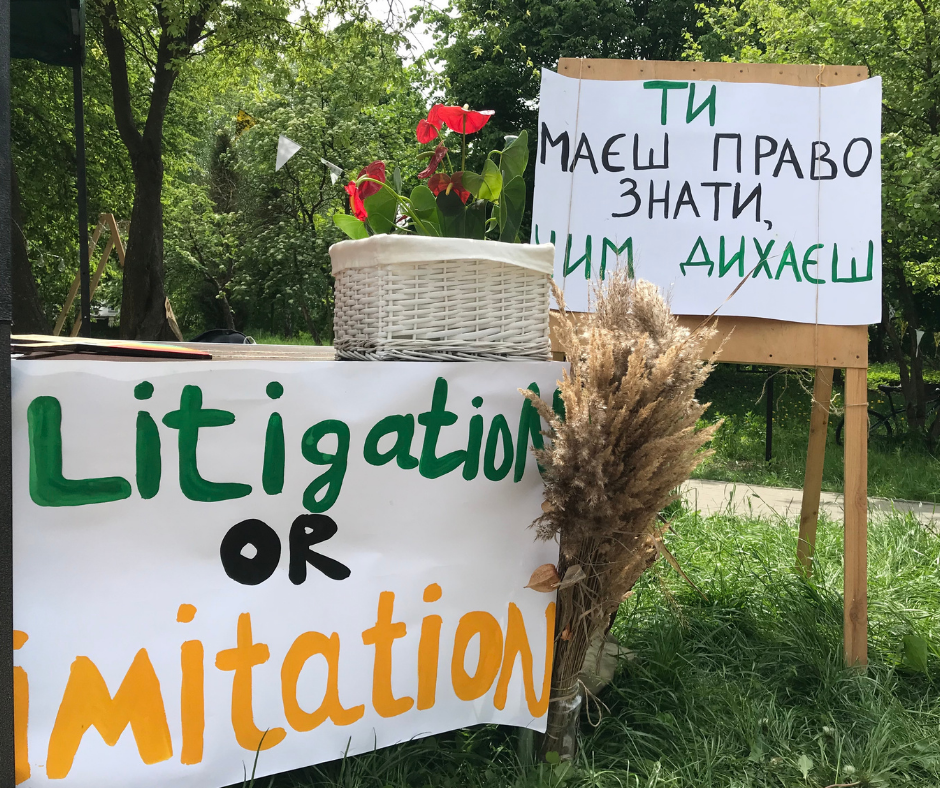The Supreme Court of Ukraine overturned the decisions of local courts that declared Ecoclub’s publications illegal. The Supreme Court has confirmed the rights of environmentalists to criticize dubious and risky decisions, including the construction of Kronospan. In its decision, the Court recognizes that public criticism of environmentally threatening projects is an important foundation of the democratic country system and must not be limited.
Kronospan demanded from Ecoclub to refute the criticism of the plant’s planned activities and wanted to claim a compensation of reputational damage of UAH 150,000 (later reduced the amount of the claim to UAH 1) through the court.
The practice, when polluters with a dubious reputation try to silence activists by threatening them with lengthy lawsuits and large fines, is widespread around the world.
Local courts upheld Kronospan’s lawsuit, so Ecoclub was forced to refute its remarks and appeal to the Supreme Court for a fair trial. The Supreme Court overruled previous decisions of court of firs instance and appeal court: the ruling stated that the local courts had unreasonably demanded Ecoclub to refute the criticism, and that their ruling did not comply with:
– Constitution of Ukraine;
– Convention on Access to Information, Public Participation in Decision-Making and Access to Justice in Environmental Matters;
– Civil Code of Ukraine;
– Laws of Ukraine “On environmental protection”, “On information”, “On environmental impact assessment”.
The lawyer of the NGO Ecoclub Vitaliy Kitovsky noted:
“I am pleased that the attempt of Kronospan Rivne LLC to pressure a public organization that criticizes the construction of the plant has failed. The court’s legal position, in this case, will be important for the protection of the rights of non-govermental organizations and the effectiveness of the environmental impact assessment procedure, as it guarantees free dissemination of information on possible threats to the environment.”
Andriy Martyniuk, the executive director of Ecoclub, is convinced that such lawsuits from large polluters and illegal decisions can become obstacles to public participation and be instruments of pressure on the community.
“The panel of judges drew attention to the fact that within a democratic society in a social and legal state, public participation in solving socio-environmental problems is not only meant to exercise civil rights but also help to develop such a society and state. Ecoclub has proven that it is worth fighting for the truth and clean and safe environment. People’s participation in preparation and decision-making is the key to improving the environment.”
Andriy Andrusevych, International Expert on Legal Environmental Protection, Member of the Board and Senior Analyst of the Resource and Analytical Center “Society and Environment”:
“The Supreme Court practically supported the public on all possible grounds, although this required a complex analysis of national and international law, the Law on Information, environmental law, the European Convention on Human Rights, and the Aarhus Convention. This decision creates an important legal “umbrella” to protect anyone who has an opinion on projects that could have a negative impact on the environment. In particular, the public will not have to prove the “authenticity” of their comments in the environmental impact assessment process. “
The similar lawsuit related to reputational damage of Kronospan against ATO veteran Andriy Ovsiychuk has been delayed for more than a year in the Rivne City Court.
We urge the local court to judge according to the law a legal decision and avoid mistakes made with the Ecoclub case.











